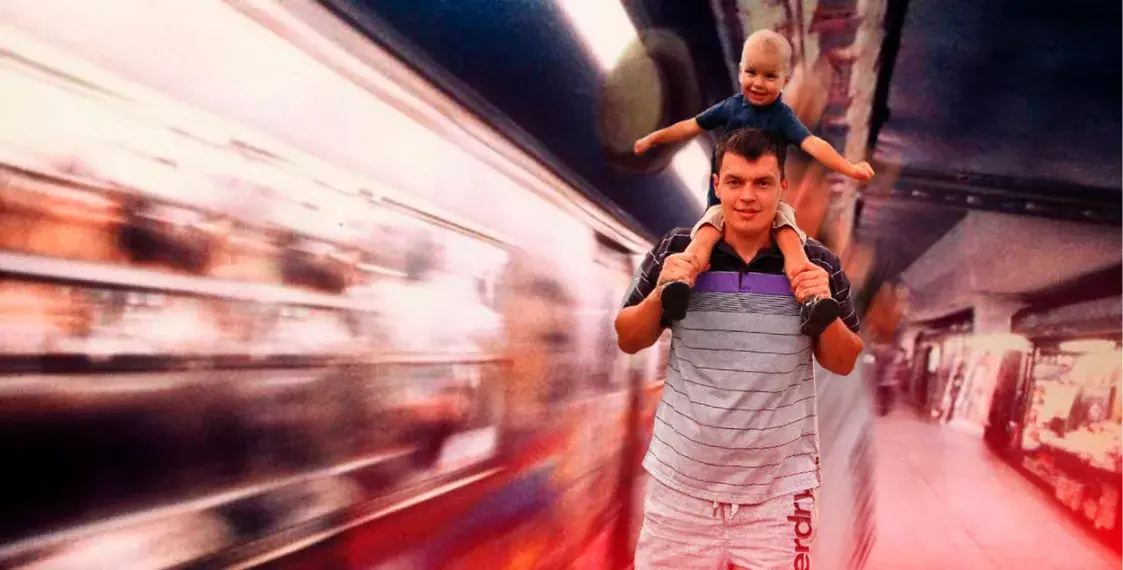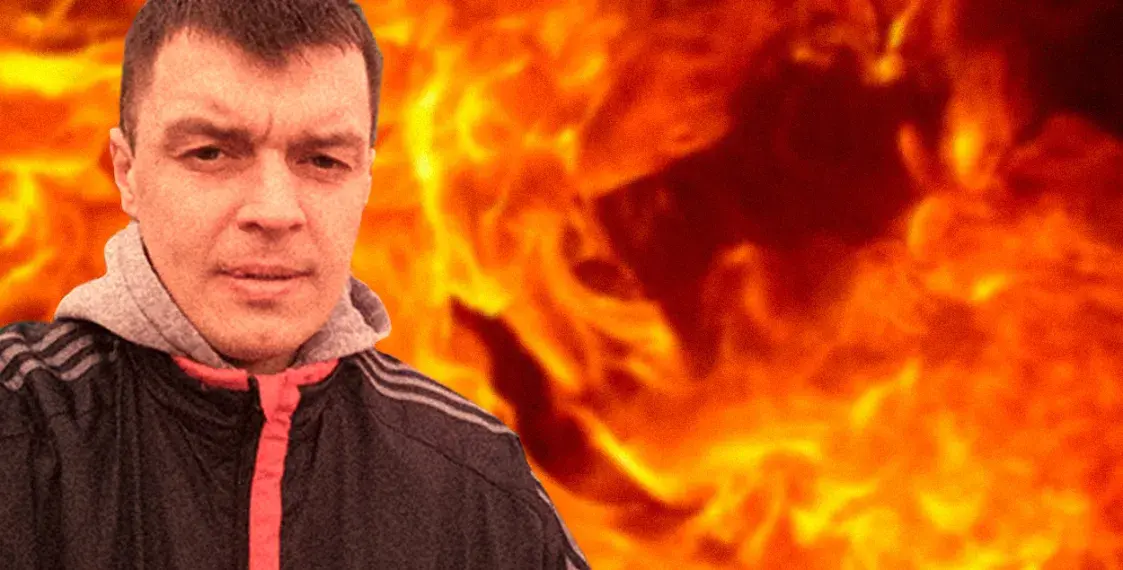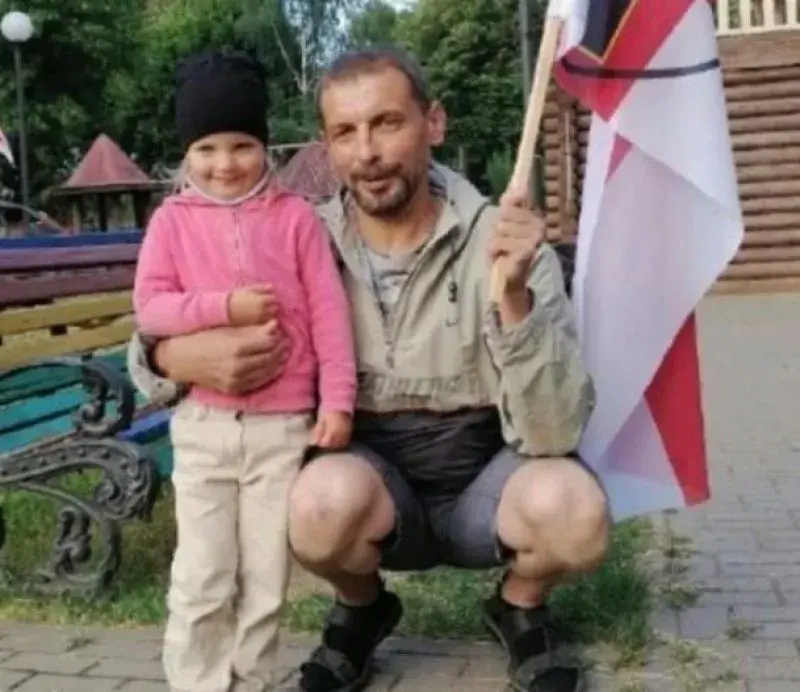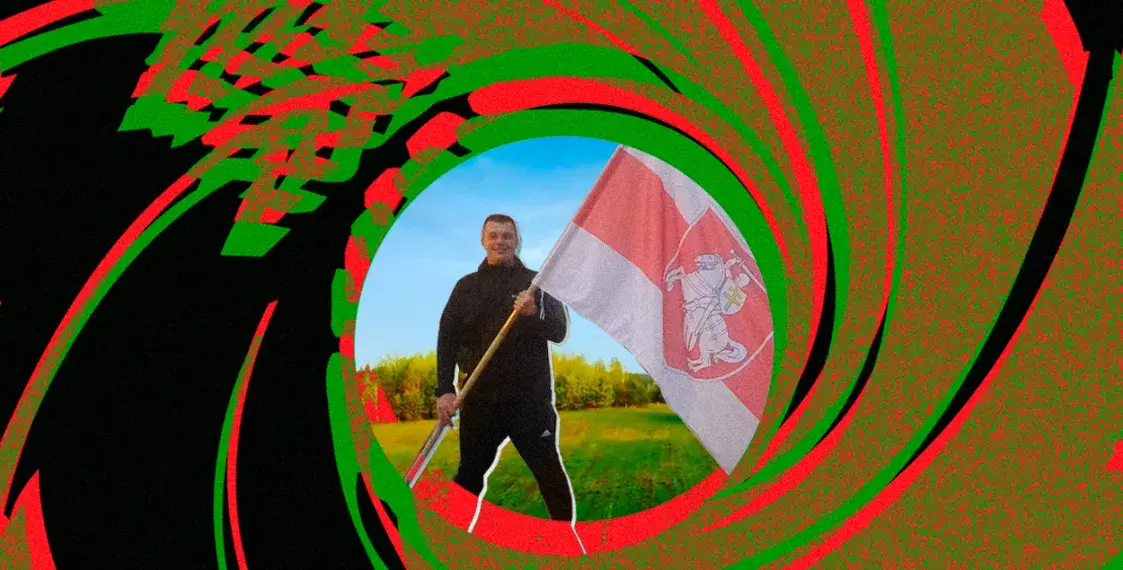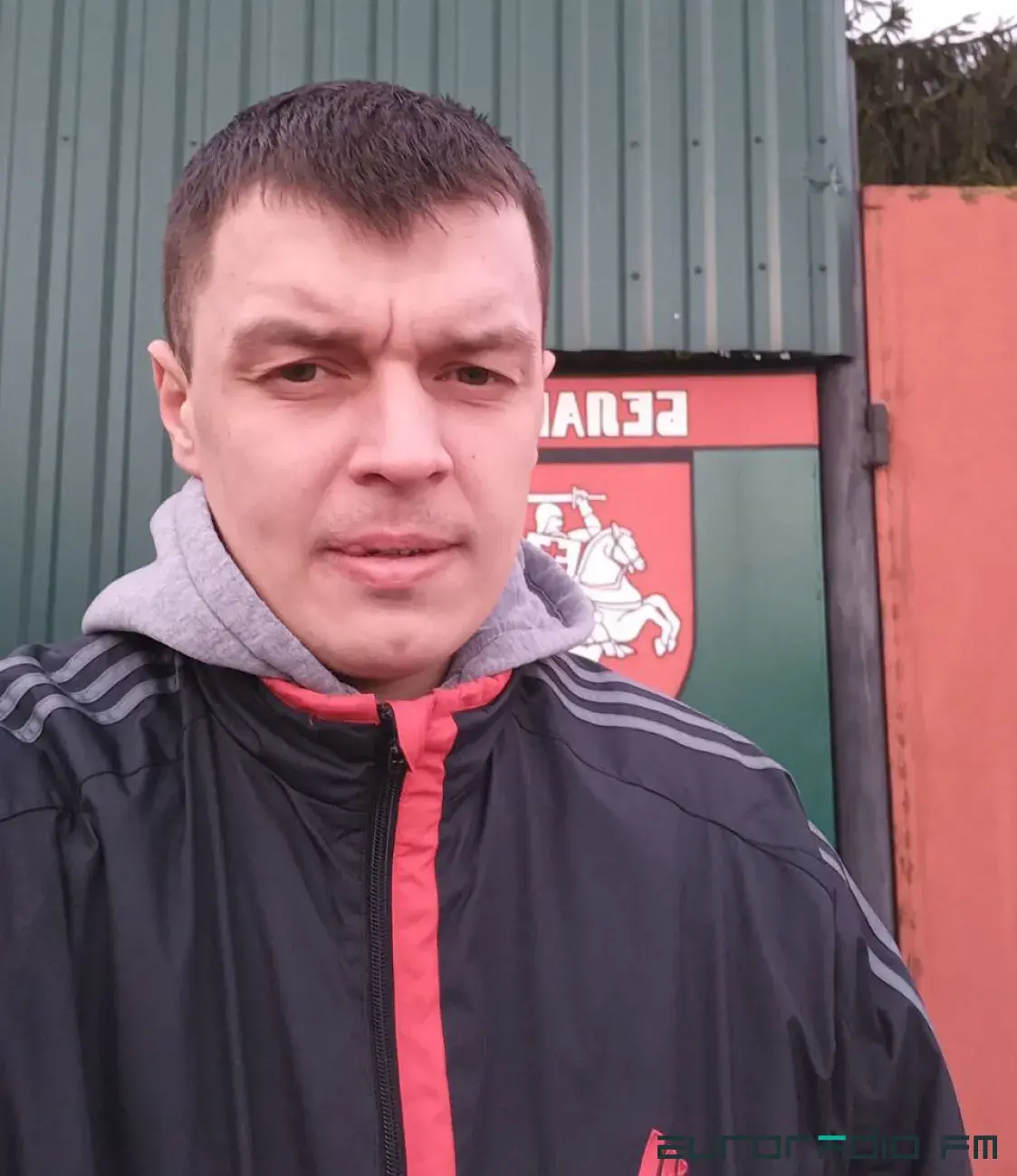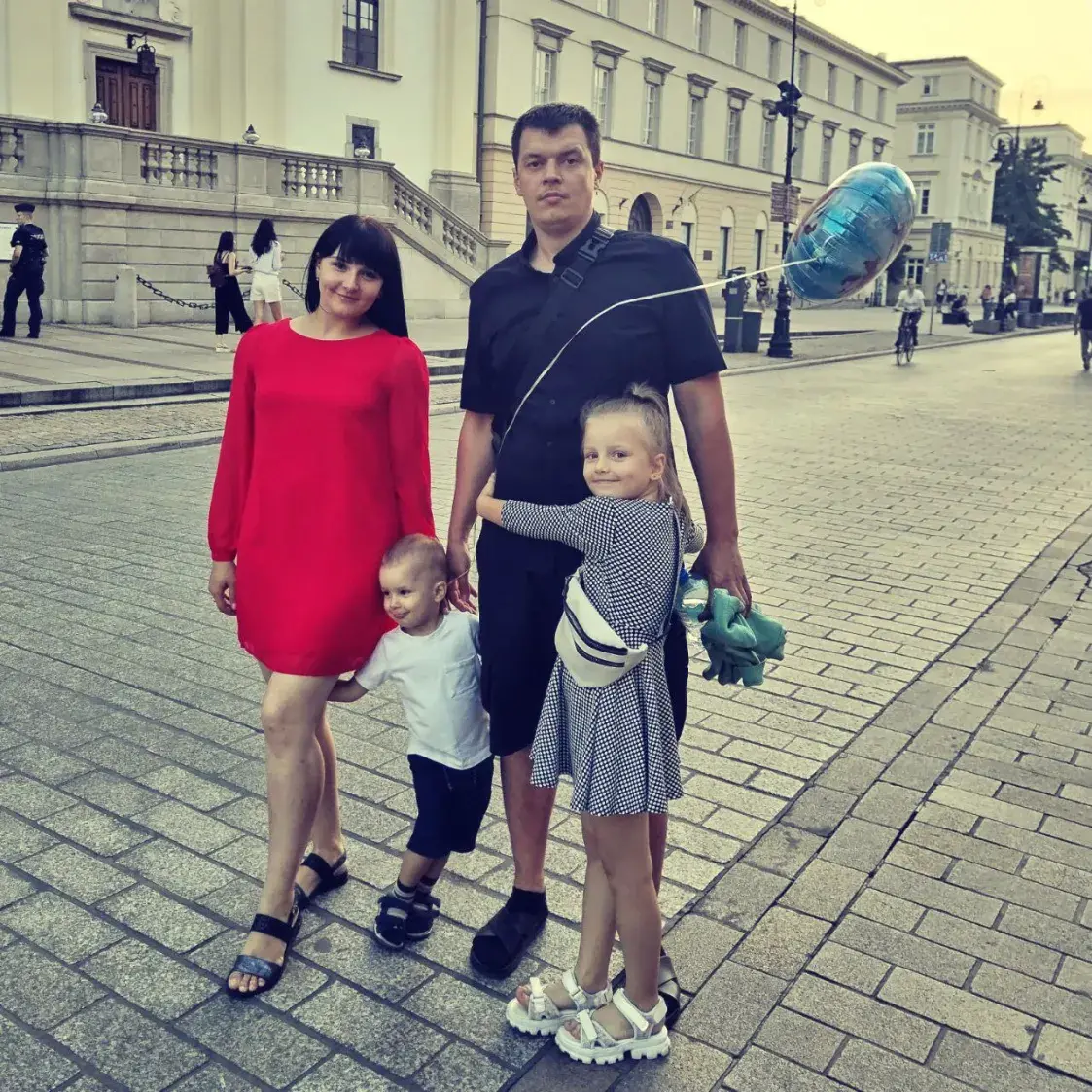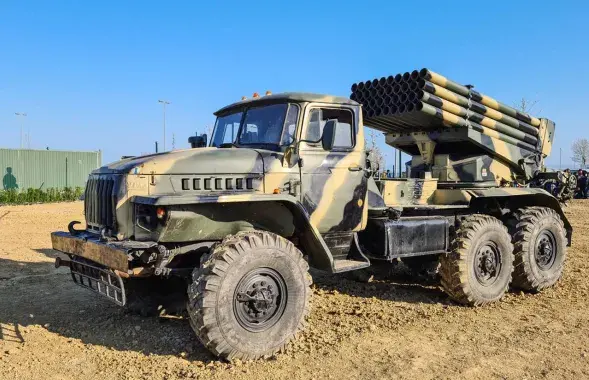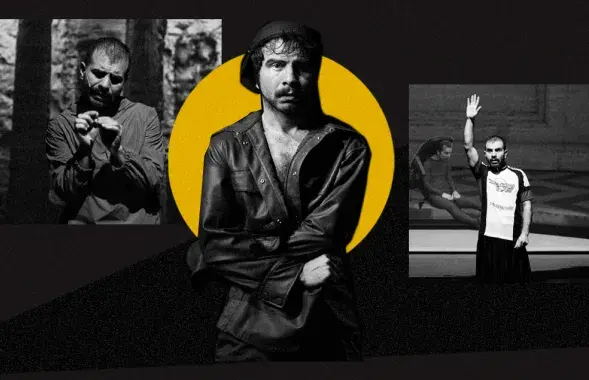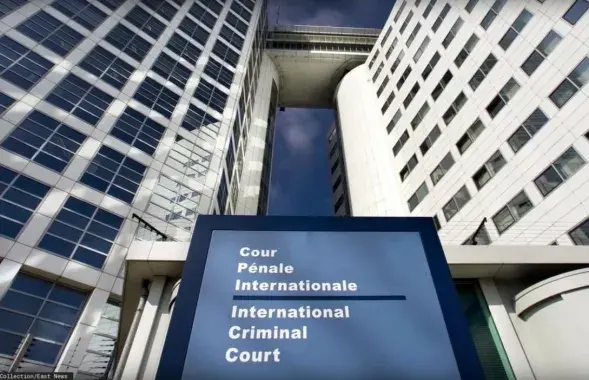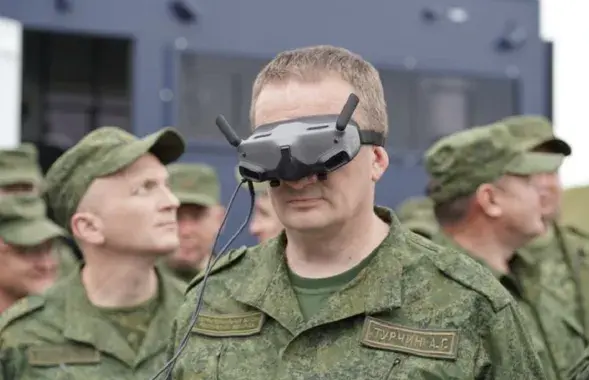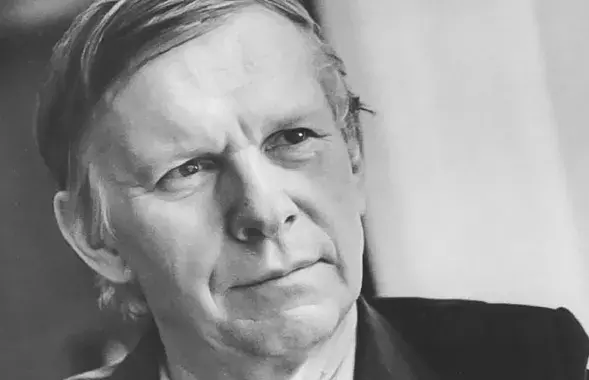How to survive in a small town at the height of repression

We are sure Daniel Craig would be flattered to play the role of Artsiom from Čačersk / collage by Ulad Rubanau, Euroradio
The night of August 3, 2020, Artsiom Kavaliou spent on the roof of his house in Čačersk. There was a police minibus parked in the driveway. Artsiom knew exactly who they had come for.
If you asked us who should play the role of a secret agent in the "Bondiana", we would say - someone from Belarus.
"I carried Sviatlana's picture and distributed leaflets"
In the small Belarusian town of Čačersk, the locals call Siarhei Tsikhanouski "our man, from Homiel". So when Tsikhanouski announced his plans to run for president, Artsiom joined the team.
"Of course I supported Tsikhanouski. The movement began. I helped on the picket lines, carried Sviatlana [a cardboard cutout of Sviatlana Tsikhanouskaya] and told everyone - this is your future president. I handed out leaflets to Lukashenka supporters.
But the first time Artsyom clashed with the system was earlier, in 2017. He was sentenced to 10 days' imprisonment after the "No Parasites march". After leaving the cell, he wrote a complaint to the UN Human Rights Committee together with human rights activist Leanid Sudalenka from Homiel. The Belarusian authorities had to consider the complaint. Since then, the impression has remained that the laws in Belarus "still work a little".
Now human rights activist Sudalenka is in Colony No. 3. Artsyom's father, Yury Kavaliou, was sent to a psychiatric hospital for compulsory treatment. The last time they saw each other, his father, once a robust and healthy man, was shaking on his hands and knees. A month after that meeting, Artsiom himself fled Belarus in shorts and a T-shirt.
Belarus no longer considers its citizens' complaints to the UN Human Rights Committee. The laws in Belarus are "a bit broken," he says.
"I realized that if they caught me, they'd beat me all the way to Homel"
"They chased me like in the movies," Artsiom says. By the summer of 2020, he was being followed and his phones were being tapped.
"On August 3, I looked out the window - there was a police van near the house. I realized that they were following me. I left the apartment and cautiously went to the next door. I sat on the roof for 24 hours. I realized that if they caught me, they would beat me all the way to Homiel.
The day before, Artsiom had sent his wife and children to live with relatives in the village. He gave his main cell phone to his wife and kept a small, old cell phone for himself.
"When you call on this old phone, the police can't determine your specific geo-position, only the general area of the call. When I was already on the roof and realized that the phone was tapped, I called my wife from there. I said: I'm sitting in the bushes, I'll leave when the lights go out in the courtyards.
And when the lights went out in the courtyard, a car drove into the parking lot in front of the house with its headlights off. And in another five minutes, the whole neighborhood was lit up, Artsiom recalls. The streetlights came on, the headlights shone. But the trick worked. Artiom watched from the roof as they searched for him in the bushes.
"That was when I was really scared. So much effort to catch a hillbilly like me? But then I managed to escape.
Artsiom spent the next few days in hiding. And he knows for a fact that they tried to find him.
"His wife stayed in the village. And an hour and a half after she turned on my phone, there was a village full of police and riot police. They came to my mother-in-law and father-in-law's house looking for moonshine. They searched the house looking for me - but of course I wasn't there.
And on August 8, they announced that there would be fireworks in town. That night, when the whole city went to see the fireworks, Artsyom secretly moved from his shelter to Homiel.
"I saw the protests of August 9-11. Then we were surrounded on Vosstaniya Square, police in parade uniforms and white shirts came out and just started beating people. Well, then I went to Minsk. There I got a good blow with a club on my back, but I managed to avoid arrest. Because of the blow, the blood went to my lungs, and I was out of action.
While the people of Čačersk continued to take to the streets, Artsyom was in the hospital. And when he came out, there were hardly any protests in Čačersk.
"In a concentration camp, and especially in a small town, it was impossible to revolt. So I went underground.
"My wife cried out in horror and tears: "What have you done to him?"
While his son was in the hospital, his father, Yuri Kavaliou, went to the protests. And each time, after the action, he was taken to jail for 24 hours. In the family archive there is a photo of Yuri with his granddaughter. With one hand the grandfather embraces his granddaughter, with the other he holds a white-red-white flag. Both are smiling.
The last time Artsiom saw his father, he was crying.
In 2021, the judge sent Yury Kavaliou to a colony for a year - for insulting Lukashenka.
"Dad was taking a medical examination for his driver's license, when the psychiatrist in the office said something provocative about Tsikhanouskaya, insulting her. Papa then insulted Lukashenka. And the doctor caught it on tape," Artsyom says.
Yuri spent a year in the colony. And three days before his release, he was put on trial again: allegedly for disobeying the administration, Kavaliou was sentenced to a year of compulsory treatment in a psychiatric hospital.
"They couldn't do anything with him in the punitive isolation cell, so they applied punitive psychiatry. At first he was kept in Minsk, in Navinki. When I went there to meet him, he was still a healthy man. Just very thin, but healthy and strong in spirit. Then the hospital was closed because of the coronavirus and they stopped allowing visitors.
In February of 2023, he was transferred to Homiel. When we arrived for a visit, my wife was horrified and in tears, crying: "What have you done to him?"
It was a terrible sight. His hands and knees were shaking. Tears were streaming from his eyes. He was stuffed with pills. What they couldn't do in prison, they did with drugs. And physically, he became a different person.
Artsiom says that after the shots, his father began to have irregular heartbeat and insomnia. Movement, speech - everything slowed down. The doctors in Minsk said that they injected his father with the drug "Klopixol DEPO". It's a neuroleptic with an inhibitory effect. The drug is used to treat acute and chronic schizophrenia and other psychotic disorders.
"I kept my cool when he was around, but when I came out of there, I had tears coming out of my eyes.
And I decided I was going to talk about it. Because whatever decree comes from above, it is the people on the ground who carry it out. Let everyone who goes to give him an injection or sign a paper in the commission know that they are committing a crime.
"I'm not scared of going to prison - I'm scared of becoming a burden on the family"
"When Dad was transferred to a mandatory treatment facility, they told me, 'Do you want to end up there? It won't be hard for us to send you there. I lived in constant fear for my children, for my mother, for my father. I was never afraid of going to prison - I was afraid that if I went down, I would be a burden to my family," Artsiom says.
"What is it like to live in a small Belarusian town now?"
"We are losing the country. The best are leaving, while the best of the best are in prison.
Those who can be influenced are driven to pro-government rallies. I've seen people at these rallies who don't agree with the government. In a small town you can see it all.
And you can see how professionals who can't get a job anywhere in town have been removed from their jobs.
And when the war started, I saw how Russian propaganda worked. Even people who came out to protest sometimes spoke in favor of the war. They are not the majority, but they are there - those who believe that Nazis are at work in Ukraine. This terrible Goebbels propaganda works.
Artsyom went to university in Chernihiv. It is a little over two hours' drive from the Belarusian town of Chachersk to the Ukrainian town of Chernihiv. When the war broke out, he saw planes flying through his Čačersk to bomb his Chernihiv.
In 2023, after a drone attack on a plane in Machulishchy, the system conducted another "sweep". Then Artsyom also had to leave Belarus.
"The fortress in the Chachersk region held out to the last man."
"It was an ordinary day. I came to my garage and brewed coffee. I hadn't started work yet - and then there was a knock on my door. I had "The Chase" painted on the gate.
Here we had to interrupt Artsyom again.
"In 2023?"
"Well, yes, yes, the fortress in the Chachersk region held out to the last man. Until March 14, 2023, "The Hunt" was painted on the door.
It was the KGB guys from Homiel who knocked on the door. They came to Artsiom's house to "look for weapons, ammunition, connections with "BySol" and the "Peramoha" plan. But before opening the doors, Artsiom managed to get rid of his cell phone.
"The dogs helped. I have three of them - two Central Asian shepherds and an ordinary dog that stayed with us. And while I was putting the dogs away, I managed to throw the phone away so they wouldn't find it.
Then I opened the door and it began: "Guess why we're here." I said, "What am I, a fortune teller?" And this verbal argument went on until noon. They came with papers to search all the apartments - my grandmother's and my apartment. My grandmother lives in my father's apartment. They scared her.
They turned everything upside down. My car was in a closed garage and it had a "Chase" sticker and a flag on it. They wrote that my car was "protesting" in a closed garage. For every book, for every sticker they found on me, they started writing extremist protocols. I realized: that's it, this looks like a prison sentence.
In the evening, the police began to prepare Artsiom for the temporary detention center in Chachersk. They handcuffed him. But Artsyom said he was not feeling well, and they had to take him to the hospital.
"At the hospital it turned out that he had high blood pressure, high temperature, and a bad EKG. The policeman stood there and thought whether he should take pictures of the ECG. But what can you tell from a picture? Not every doctor can read it. Anyway, they left me at the hospital.
"Like in a computer game - "Level not saved".
At night Artsyom escaped from the hospital in a T-shirt and shorts. He secretly went to Moscow. He contacted BySol. They told me to run further - to Yerevan. In Yerevan they said: don't stay long, if they put you on the international wanted list, Armenia will extradite you.
"So I left Yerevan and took the serpentine road to Tbilisi. It rained in Tiflis. But even there I met good Belarusians. They helped me find a place to stay. In general, wherever I met Belarusians, I found help".
Already in Georgia Artsiom got a Schengen visa. At that time, he only had enough money for a ticket from Kutaisi to Warsaw. On May 9, he landed in Poland with $50 in his pocket.
Here he quickly found a job as a delivery man. Belarusians also helped him rent a car. Then, he rented an apartment and moved his wife, mother and two small children out of Belarus. Someone from the Belarusians in Warsaw community on Facebook told him: "Wait, there are no more enemies here.
Artsiom likes his new apartment in Warsaw. There is a school and a kindergarten nearby. Convenient transportation. But when the family entered the house, it turned out that there was nothing there but a refrigerator, a washing machine and a stove.
Everything was left behind in Belarus. A furnished apartment, cars, appliances, tools. And here there wasn't even a frying pan.
"Like in a computer game - level not saved," Artsiom jokes.
He has always been able to work and earn good money, but first the family needed help. So Artsyom wrote about the problem in the group "Belarusians in Warsaw". And then a miracle happened:
"I have cribs, I'll bring them tomorrow!"
"I'll help with the dishes."
"I will bring toys for the children. What size clothes does your wife wear? I'll find something."
The day we called Artsiom, he was finally going to have a place to sleep - until then he had to sleep on the floor. And then a Belarusian woman called and offered to bring a mattress.
Artsyom's father knows that he left Belarus. Before he left Čačersk, his wife and oldest granddaughter came to see him. The one standing next to the smiling grandfather in the photo, holding a flag.
"When my mother talked about me, his hands started shaking again. He told her: "You're lucky you didn't get caught. Forget everything, it's all for nothing. Look what they've done to me."
* * *
We asked what else the family needed, but Artsiom wouldn't say. He said that a few days ago there was nothing - and now he had something to sleep on and something to cook food in. But he humbly admitted that he would never refuse toys for children. If you would like to contact Artsiom Kavaliou's family, please write to our editors at info@euroradio.fm or to our chatbot in Telegram: @euroradio_minsk.
